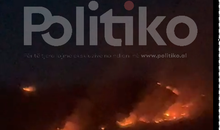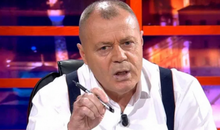
 Flash News
Flash News
International drug search: 36-year-old arrested in Durrës (NAME)
Veliaj's appeal to be heard today in the High Court
Today's hearing at the Fier Court, Salianji requests conditional release
Taxi collides with truck on Lezhë-Shkodër axis, driver taken to Trauma in serious condition
At least 91 dead in Texas floods
Regional civil society: EU made mistakes with enlargement and geopolitics
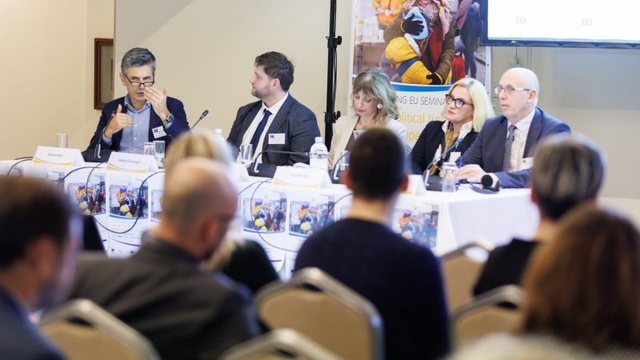
The European Union has failed with the Western Balkans in terms of enlargement and it is more important than ever that the process is handled in a careful and sensitive way, while still preserving the bloc's foundations, participants at an EU conference in Zagreb said. .
The European Economic and Social Committee (EESC) held a two-day event in the Croatian capital to discuss the role of civil society and the media in the current geopolitical context with war on Europe's doorstep. With panelists from across the Western Balkans region, the topic of enlargement was the focus of the agenda.
"We have to manage the Western Balkans in a very careful and sensitive way, in a proper and honest way. Europe can only get members who meet the criteria of democracy, otherwise we develop a Europe with enemies within", said Seamus Bolan, president of the EESC Group of Civil Society Organizations.
While it is important to ensure a consistent approach to the admission of all member countries, the conditions of candidacy must be clear and transparent, but also provide tangible hope for countries, he added.
But beyond that, Europe has made a number of mistakes, not just in terms of acceptance, but in its approach to geopolitics, he added.
"We learn nothing from history, Winston Churchill said, we learned nothing from World War II, that's quite said," Bolan said.
“Europe needs to look at putting itself in a place where it has the power to deal with the kind of aggression we've seen from Russia. It will never go away," he added.
This should take the form of creating new structures to deal with the new security reality, managing infrastructure in terms of food security, free movement of people, energy security and defense as all these are now on the agenda. .
"This will challenge the EU in a way that will make it or break it," he added.
Regarding stalled enlargement, the panelists discussed the real-world impact of this, including falling EU support in some countries, including Serbia.
Dusan Gajic, korrespondent i RTS, transmetuesi publik serb dhe kryeredaktor i SEETV, tha se Evropa duhet të vendosë një ofertë të besueshme në tavolinë, si për hir të Serbisë ashtu edhe për rajonin, sepse aktualisht “BE duket si një e mirë por qëllimi i largët”.
Duke iu drejtuar mbështetjes dërrmuese për Rusinë dhe presidentin e saj Vladamir Putin, ndërsa vetëm 34% e vendit e mbështesin pranimin në BE, ai shpjegoi se kjo është pjesërisht një "votim proteste".
Ndërsa është ushqyer gjithashtu nga nacionalizmi dhe "përgjigjja joadekuate e Evropës ndaj Ballkanit" gjatë 20 viteve të fundit, ai tha se mbështetja për Rusinë ka të bëjë më shumë me pakënaqësinë e Perëndimit.
“Ata e shohin vendin si viktimë të trajtimit të padrejtë nga fuqitë perëndimore, të ushqyer nga politikanët. Inati tani është më i fortë se 20 vjet më parë pasi NATO bombardoi Serbinë. Ndërsa ka një rritje të lehtë të mbështetjes për sanksionet kundër Rusisë, kjo mbetet një pakicë e madhe”, tha ai.
Sa i përket Komunitetit Politik Evropian të propozuar, një ide e lëshuar nga presidenti francez Emmanuel Macron më herët në 2022, e ndjekur nga takimi i parë në fillim të tetorit, panelistët mbeten të pakënaqur.
“Nuk ka asnjë zëvendësim për zgjerimin e BE-së. Vendet e Ballkanit Perëndimor kanë të drejtë që thonë se nuk e duan Komunitetin Politik Evropian,” tha ai duke shtuar se integrimi në BE ka të bëjë me përafrimin dhe krijimin e një sistemi funksional dhe jo duke u përpjekur ta zëvendësojë atë me diçka tjetër,” tha Adnan Cerimagic, një analist për Ballkanin Perëndimor në Iniciativën Evropiane të Stabilitetit.
Sa i përket gjendjes së vështirë të Bosnjë-Hercegovinës, të cilën Komisioni Evropian rekomandoi në tetor, duhet të marrë statusin e kandidatit, por po përpiqet të mbledhë mbështetje nga vendet anëtare, nevoja për ta sjellë vendin në grupin e BE-së është edhe më e fortë.
Leila Bicakcic, director at the Center for Investigative Journalism in Sarajevo, said that "EU accession was not even mentioned during the last election campaign, it is not on the agenda and it is not important for politicians."
"Candidate status is important for Bosnia and Herzegovina, there should be a stronger EU role in the Western Balkans," she added.
Source: Euroactiv
Latest news


International drug search: 36-year-old arrested in Durrës (NAME)
2025-07-08 09:50:48
Thethi, tourists "criticize" modern trend
2025-07-08 09:39:54
Fire on Mount Dukat still active, Llogara National Park at risk
2025-07-08 09:28:12
Veliaj's appeal to be heard today in the High Court
2025-07-08 09:16:02
"Bad sign for democracy"/ Parliament neglects reporting by institutions
2025-07-08 09:04:56
Today's hearing at the Fier Court, Salianji requests conditional release
2025-07-08 08:56:39
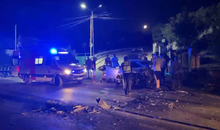
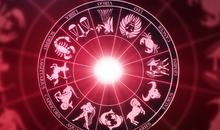
Horoscope, what do the stars have in store for you today?
2025-07-08 08:16:19
Weather forecast/ How temperatures will vary throughout the day
2025-07-08 08:02:37
Morning Post/ In 2 lines: What mattered yesterday in Albania
2025-07-08 07:48:30

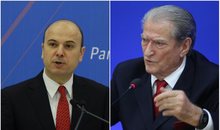



Marrëdhënia që s’është romancë, por s’është as thjesht kolegiale
2025-07-07 21:39:13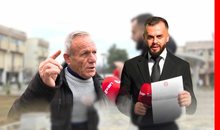
Citizen is asked to pay 2.5 million for a non-existent meter
2025-07-07 21:28:03

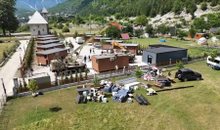


What is the ideal air conditioner temperature in summer?
2025-07-07 20:53:46
GJKKO left him in prison, Meta appeals the decision
2025-07-07 20:38:05
Where is Ronaldo after missing Diogo Jota's funeral?
2025-07-07 20:38:04

Messages from the author who killed Ilaria Sulla in Rome are revealed
2025-07-07 20:20:12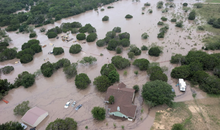
At least 91 dead in Texas floods
2025-07-07 20:12:02
Elbasan, choked by smoke, scorched by conscience
2025-07-07 19:48:16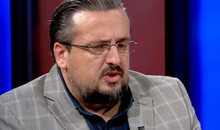

Swarm of bees attacks citizens in France, 24 people end up in hospital
2025-07-07 19:32:03
Dementia/Hearing loss may be a warning sign
2025-07-07 19:13:06
The decision for Malltez, Gjokutaj: Boomerang for SPAK and the Court
2025-07-07 19:01:08

Former Supreme Court member acquitted of asset concealment
2025-07-07 18:36:40

WIIW expert in Politiko: Brain drain is steadily weakening the Albanian economy
2025-07-07 18:11:41
Heart health is at risk from extreme heat, here's what you should be careful of
2025-07-07 18:10:18
Today Gert Bogdani would celebrate, Edlira Çepani's touching dedication
2025-07-07 17:40:45
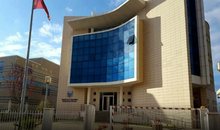

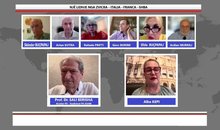
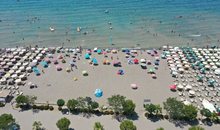
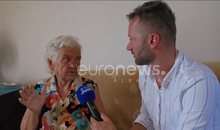

The striker severely accuses the Fenerbahce club: They tried to drug me
2025-07-07 16:21:03
A decomposed body is found in Kolonjë, initial suspicions
2025-07-07 16:03:31
Accident in Saranda, car hits motorcycle, one injured
2025-07-07 15:58:56

The most fertile age for men and women
2025-07-07 15:40:52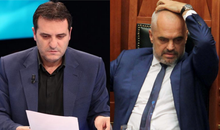
Locals, Rama candidate in 5 municipalities
2025-07-07 15:32:22
Blushi: Meta's criminal kidnapping, incomparable even to Navalny's in Russia
2025-07-07 15:20:34
Meet the iPhone 17 Pro, the main innovations in design and technology
2025-07-07 15:09:09
Why the release of Abi Malltez does not free him; much less Albania
2025-07-07 15:00:12
‘Lidhjet klienteliste’ të mjekëve mbushin recetat e pacientëve
2025-07-07 14:57:33
Poland imposes border controls with Germany and Lithuania
2025-07-07 14:48:15

Caught transporting firearms from Kosovo to Albania, young man arrested (NAME)
2025-07-07 14:37:47
Theo Hernandez flies to Saudi Arabia for medical check-ups
2025-07-07 14:26:47


Scorching heat, Greece orders mandatory work holidays
2025-07-07 13:54:25


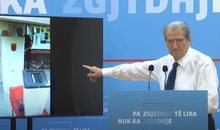
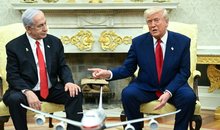
Trump expects Netanyahu to discuss Gaza ceasefire
2025-07-07 12:54:27
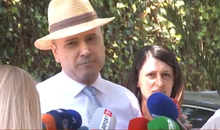
GJKKO releases Jamarbër Malltezi from house arrest
2025-07-07 12:35:02
Tourism among contrasts
2025-07-07 12:31:01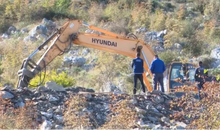
IKMT action in Theth, starts demolition of unauthorized constructions
2025-07-07 12:24:18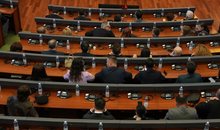

The Tirana-Kamëz line is destroyed by urban fire
2025-07-07 12:00:24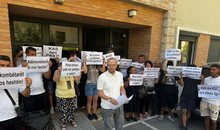
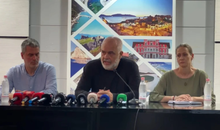

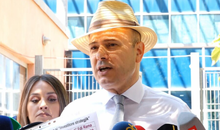

Poor direction!
2025-07-07 11:16:01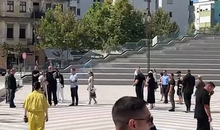


Rama to gather the country's mayors on July 9
2025-07-07 10:43:31
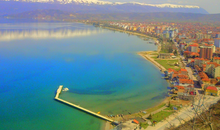
Ohrid Natural Park on the way to UNESCO's "black list"
2025-07-07 10:25:58

Registrations for the new school year begin in e-Albania
2025-07-07 09:59:09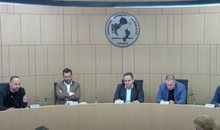
KAS decides the "fate" of the elections in four districts of the country today
2025-07-07 09:50:51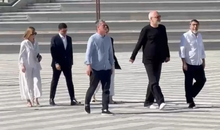
Rama does not give up on Vlora, visits the municipality again
2025-07-07 09:39:11
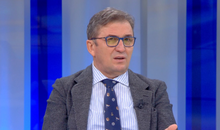

Fires in Gjirokastra, flames very close to cultural monuments
2025-07-07 09:12:49

Foreign exchange, the rate at which foreign currencies are sold and bought
2025-07-07 08:39:57

Horoscope, what do the stars have in store for you today?
2025-07-07 08:14:17
The week starts with scorching temperatures, the thermometer reaches 37°C
2025-07-07 07:58:36
Morning Post/ In 2 lines: What mattered yesterday in Albania
2025-07-07 07:45:15
